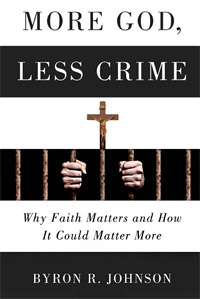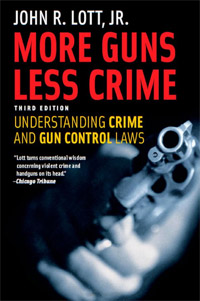My weekend at the New Orleans Baptist Seminary discussing God, religion, and the afterlife
On Friday, April 13, 2012 in the chapel of the New Orleans Baptist Seminary I debated the Liberty University philosopher and theologian Gary Habermas on the question: “Is There Life After Death?” I went first. I stated that since Gary is taking the affirmative I’m suppose to defend the negative, but in fact when it comes to the afterlife, “I’m for it!” Tellingly, that line didn’t get the usual laugh it engenders in audiences, but then in seminary school the afterlife is a deadly serious subject. I began with this thought experiment:
Imagine yourself dead. What picture comes to mind? Your funeral with a casket surrounded by family and friends? Complete darkness and void? In either case you are still conscious and observing the scene.
I then outlined the problem we all have in thinking about life after death: we cannot envision what it is like to be dead any more than we can visualize ourselves before we were born, and yet everyone who ever lived has died so death is inevitable. This leads to either depression or humor. I prefer the latter. For example, Steven Wright: “I intend to live forever—so far, so good.” Or Woody Allen: “It’s not that I’m afraid to die. I just don’t want to be there when it happens.”
Of course, you won’t be there when it happens because to experience anything you must be conscious, and you are not conscious when you are dead. I then outlined four theories of life after death, gleaned from my recent Scientific American column based on Stephen Cave’s marvelous new book, Immortality, which I highly recommend reading. (continue reading…)
Comments Off on Shermer in Seminary School

Yours truly, leading the Reason Rally Cheer (photo by John Welte)
March 24, 2012 marked the largest gathering of skeptics, atheists, humanists, nonbelievers, and “nones” (those who tick the “no religion” box on surveys) of all stripes on the Mall in Washington, D.C., across from the original Smithsonian museum. Crowd estimates vary from 15,000 to 25,000. However many it was, it was one rockin’ huge crowd that voiced its support for reason, science, and skepticism louder than any I have ever heard. Anywhere. Any time. Any place. It started raining just as the festivities gathered steam late morning, but the weather seemed to have no effect whatsoever on the enthusiasm and energy of the crowd…or the speakers and performers. The organizer and host David Silverman and his posse of tireless staff and volunteers pulled it off without a hitch. Organizing big events can be an organizational nightmare, but they did it, marking what I hope is the first of many consciousness raising events in the civil rights movement for equal treatment for us nonbelievers and skeptics. (continue reading…)
Comments Off on Reason Rally Rocks
A couple weeks ago, I participated in an online debate at Evolution News & Views with Center for Science & Culture fellow Michael Flannery on the question: “If he were alive today, would evolutionary theory’s co-discoverer, Alfred Russel Wallace, be an intelligent design advocate?” Before reading this week’s post, you can review my opening statement in my previous Skepticblog and Flannery’s reply. The following is my response. A link to Flannery’s final reply can be found near the end of this page.
Michael Flannery’s assessment of Alfred Russel Wallace as a prescient scientist who anticipated modern Intelligent Design theory is premised on the belief that modern evolutionary biologists have failed to explain the myriad abilities of the human mind that Wallace outlined in his day as unanswered and—in his hyperselectionist formulation of evolutionary theory—unanswerable. In point of fact there are several testable hypotheses formulated by scientists—evolutionary psychologists in particular—that make the case that all aspects of the human mind are explicable by evolutionary theory. Flannery mentions just one—Steven Pinker’s hypothesis that cognitive niches in the evolutionary environment of our Paleolithic hominid ancestors gave rise to abstract reasoning and metaphorical thinking that enabled future humans to navigate complex social and cognitive environments found in the modern world. In his PNAS paper Pinker outlines two processes at work: “One is that intelligence is an adaptation to a knowledge-using, socially interdependent lifestyle, the ‘cognitive niche’.” And: “The second hypothesis is that humans possess an ability of metaphorical abstraction, which allows them to coopt faculties that originally evolved for physical problem-solving and social coordination, apply them to abstract subject matter, and combine them productively.” Together, Pinker concludes: “These abilities can help explain the emergence of abstract cognition without supernatural or exotic evolutionary forces and are in principle testable by analyses of statistical signs of selection in the human genome.” Pinker then outlines a number of ways in which the cognitive niche hypothesis has been and can continue to be tested.
In point of fact, Darwin himself addressed this larger problem of “pre-adaptation”: Since evolution is not prescient or goal directed—natural selection operates in the here-and-now and cannot anticipate what future organisms are going to need to survive in an ever-changing environment—how did certain modern useful features come to be in an ancestral environment different from our own? In Darwin’s time this was called the “problem of incipient stages.” Fully-formed wings are obviously an excellent adaptation for flight that provide all sorts of advantages for animals who have them; but of what use is half a wing? For Darwinian gradualism to work, each successive stage of wing development would need to be functional, but stumpy little partial wings are not aerodynamically capable of flight. Darwin answered his critics thusly: (continue reading…)
Comments Off on The Natural & the Supernatural: Alfred Russel Wallace and the Nature of Science
A couple weeks ago, I participated in an online debate at Evolution News & Views with Center for Science & Culture fellow Michael Flannery on the question: “If he were alive today, would evolutionary theory’s co-discoverer, Alfred Russel Wallace, be an intelligent design advocate?” The following is my opening statement in the debate. A link to Flannery’s reply can be found near the end of this page.
The double dangerous game of Whiggish What-if? history is on the table in this debate that inexorably invokes hindsight bias, along the lines of “Was Thomas Jefferson a racist because he had slaves?” Adjudicating historical belief and behavior with modern judicial scales is a fool’s errand that carries but one virtue—enlightenment of the past for correcting current misunderstandings. Thus I shall endeavor to enlighten modern thinkers on the perils of misjudging Alfred Russel Wallace as an Intelligent Design creationist, and at the same time reveal the fundamental flaw in both his evolutionary theory and that of this latest incarnation of creationism.
Wallace’s scientific heresy was first delivered in the April, 1869 issue of The Quarterly Review, in which he outlined what he saw as the failure of natural selection to explain the enlarged human brain (compared to apes), as well as the organs of speech, the hand, and the external form of the body:
In the brain of the lowest savages and, as far as we know, of the prehistoric races, we have an organ…little inferior in size and complexity to that of the highest types…. But the mental requirements of the lowest savages, such as the Australians or the Andaman Islanders, are very little above those of many animals. How then was an organ developed far beyond the needs of its possessor? Natural Selection could only have endowed the savage with a brain a little superior to that of an ape, whereas he actually possesses one but very little inferior to that of the average members of our learned societies.
(Please note the language that, were we to judge the man solely by his descriptors for indigenous peoples, would lead us to label Wallace a racist even though he was in his own time what we would today call a progressive liberal.) (continue reading…)
Comments Off on Alfred Russel Wallace was a Hyper-Evolutionist, not an Intelligent Design Creationist

During the last week of 2011, I spoke at and attended a wonderful salon in Santa Fe, New Mexico organized and hosted by Sandy Blakeslee, the brilliant science writer for the New York Times and the author of numerous engaging popular books on neuroscience. Two of the speakers at the salon addressed the topic of the decline of crime, one (Byron Johnson) attributing it to god and the other (John Lott) to guns. Of the two, Lott by far took the day with superior data and better arguments, although for a much wider and deeper analysis of the decline of violence in general I highly recommend Steven Pinker’s The Better Angels of Our Nature: Why Violence Has Declined (Viking, 2011), which I recently reviewed in these pages.

Byron Johnson is a professor at Baylor University and the founding director of the Baylor Institute for Studies of Religion as well as director of the Program on Prosocial Behavior. Acknowledging that he took the title of his book, More God, Less Crime: Why Faith Matters and How It Could Matter More (Templeton Press, 2011) directly from Lott’s book, More Guns, Less Crime: Understanding Crime and Gun Control Laws (University of Chicago Press, 2010), Johnson mostly recounted his experiences working with prisoners in an attempt to lower recidivism rates by increasing religiosity…of the Christian variety, of course. What few data slides he presented harmed his case more than helped it by being either impossible to read (dark, small type) or countering his claim (one slide showed no difference in post-conversion crime rates). Even his anecdotes seemed to gainsay his thesis, as in recounting the story of one man who even after converting to Christianity refused to confess his crime of rape and murder of a young girl until he met her mother on the day of his execution, at which point he broke down and apologized to her. Additional anecdotes and frank admissions by Johnson only worsened his case, such as that many prisoners only convert in order to impress parole boards, and that many of his fellow Christians (he called them “high octane” evangelicals) were only in the game to tally up conversion scores in an environment ripe for the picking. (I routinely receive letters from prisoners who bemoan the constant evangelizing, not only by Christians but by Muslims as well who also see prisons as conversion opportunities. As the Russian comedian Yavak Smirnoff used to joke about performing in the USSR, mixing “captured” for “captive” audiences: “they’re not going anywhere!”) (continue reading…)
Comments Off on More God, Less Crime or More Guns, Less Crime?




